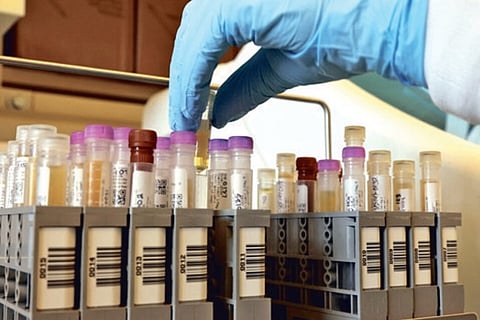

Chennai
But most people, quite understandably, want to know something more: Will being vaccinated stop the spread of COVID-19 so they can socialise outside their bubbles and dine indoors with abandon? Eventually, yes.
Many scientists are reluctant to say with certainty that the vaccines prevent transmission of the virus from one person to another. This can be misinterpreted as an admission that the vaccines do not work. That’s not the case. The limited data available suggests the vaccines will at least partly reduce transmission, and the studies to determine this with more clarity are underway. There should be more data within the next couple of months. Until then, precautionary measures like masking and distancing in the presence of unvaccinated people will remain important. It is true that, according to the clinical trial data, both the Pfizer-BioNTech and Moderna vaccines are highly effective at preventing COVID-19, the disease, but it’s unknown how well they prevent infection with SARSCoV 2, the virus. Although COVID-19 and SARS-CoV-2 are often used interchangeably, they are fundamentally different. You can’t have the disease without the virus, but you can have the virus without the disease — as many asymptomatic people already know. It’s possible that vaccinated people are protected against COVID-19 themselves, but still spread SARS-CoV-2 to others who are not vaccinated.
Why would scientists make vaccines that protect against only a disease rather than the virus that causes it? They don’t set out to do that, but it is the result, in part, of the exigencies of clinical trials. Practically, clinical trials can be completed more quickly if the endpoint of the trial — the main scientific question the trial is investigating — is something that can be easily observed. If SARS-CoV-2 infection were the trial endpoint, participants in the clinical trials would need to be tested at least weekly. It’s easier to identify participants who develop COVID-19 symptoms and then swab them to confirm. So for efficiency’s sake, the primary endpoint of the clinical trials was whether the vaccines protect against COVID-19 symptoms.
This study approach also makes sense from a public health perspective. Most people who are infected with SARS-CoV-2 will not die, but many will become very sick and require medical care. This fills up hospitals and places significant strain on the health care system. Vaccines that can transform what would normally be a severe illness into something mild and manageable relieve this burden, saving lives and improving their quality.
Historical evidence shows that vaccines that do not prevent virus infection can still stop epidemics in their tracks. The polio vaccine developed by Dr. Jonas Salk, which does not provide sterilising immunity, resulted in the rapid elimination of polio in the United States beginning in the 1950s. People lined up eagerly to receive the vaccine to protect their children and themselves. The Salk vaccine was highly protective against the devastating impact of the disease and also worked to reduce spread of the virus because so many people were vaccinated and could clear their infection.
These COVID-19 vaccines are as much a victory for public health now as the Salk vaccine was then. We would do well to remind ourselves of the transformative power of vaccines that prevent disease without completely preventing infection when enough people take the vaccine. The sooner we reduce spread in the community and protect as many people as possible through vaccination, the sooner we’ll be able to relax.
Dr. Rasmussen is a virologist at Georgetown University Medical Center
The New York Times
Visit news.dtnext.in to explore our interactive epaper!
Download the DT Next app for more exciting features!
Click here for iOS
Click here for Android